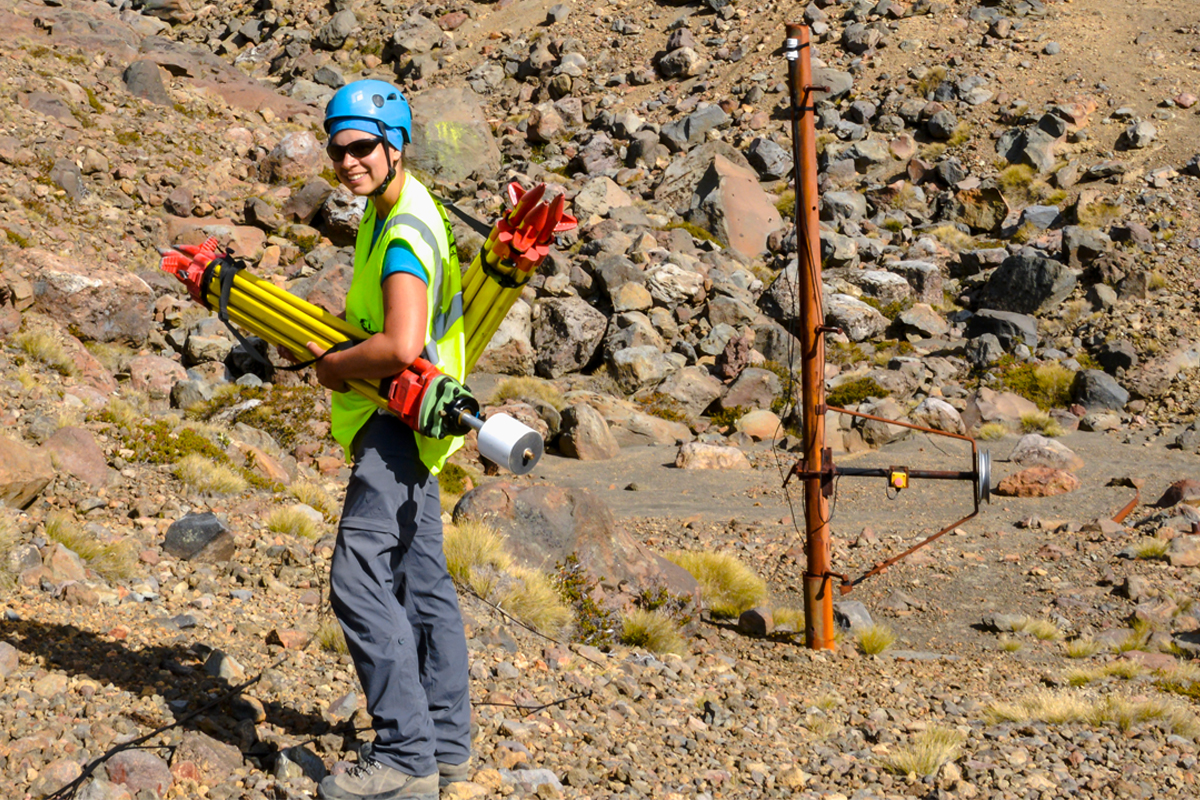All Categories
Featured
Table of Contents
Geophysical Methods in East Cannington Australia 2022

The main model for the radial structure of the interior of the Earth is the preliminary referral Earth design (PREM). Some parts of this design have been upgraded by recent findings in mineral physics (see post-perovskite) and supplemented by seismic tomography. The mantle is primarily composed of silicates, and the limits in between layers of the mantle follow stage transitions.

This makes plate tectonics possible. Schematic of Earth's magnetosphere. The solar wind Flows from left to. If a world's electromagnetic field is strong enough, its interaction with the solar wind forms a magnetosphere. Early area probes drawn up the gross measurements of the Earth's electromagnetic field, which extends about 10 Earth radii towards the Sun.
Inside the magnetosphere, there are relatively dense areas of solar wind particles called the Van Allen radiation belts. Geophysical measurements are typically at a specific time and place.
Geophysical Engineerskills And Knowledge in Kiara Oz 2023
, integrates huge collaborates and the regional gravity vector to get geodetic coordinates. This approach just provides the position in 2 collaborates and is more tough to use than GPS.
Relative positions of two or more points can be figured out using very-long-baseline interferometry. Gravity measurements entered into geodesy because they were needed to associated measurements at the surface area of the Earth to the recommendation coordinate system. Gravity measurements on land can be used gravimeters deployed either on the surface area or in helicopter flyovers.
Water level can also be determined by satellites utilizing radar altimetry, adding to a more precise geoid. In 2002, NASA introduced the Gravity Recovery and Environment Experiment (GRACE), wherein 2 twin satellites map variations in Earth's gravity field by making measurements of the distance in between the 2 satellites using GPS and a microwave ranging system. Satellites in area have actually made it possible to gather data from not only the visible light region, but in other locations of the electro-magnetic spectrum. The planets can be identified by their force fields: gravity and their electromagnetic fields, which are studied through geophysics and space physics. Measuring the modifications in velocity experienced by spacecraft as they orbit has actually permitted great information of the gravity fields of the planets to be mapped.
Geophysics in Bicton Aus 2022

Given that geophysics is interested in the shape of the Earth, and by extension the mapping of features around and in the planet, geophysical measurements include high precision GPS measurements. These measurements are processed to increase their accuracy through differential GPS processing. When the geophysical measurements have actually been processed and inverted, the analyzed outcomes are outlined utilizing GIS.
Many geophysics companies have developed internal geophysics programs that pre-date Arc, GIS and Geo, Soft in order to meet the visualization requirements of a geophysical dataset. Expedition geophysics is applied geophysics that frequently uses remote noticing platforms such as; satellites, airplane, ships, boats, rovers, drones, borehole sensing equipment, and seismic receivers.
Aeromagnetic information (aircraft collected magnetic information) gathered utilizing traditional fixed-wing aircraft platforms need to be corrected for electromagnetic eddy currents that are created as the airplane moves through Earth's electromagnetic field. There are likewise corrections connected to modifications in determined possible field intensity as the Earth turns, as the Earth orbits the Sun, and as the moon orbits the Earth.
Environmental Geophysicist in Wattleup WA 2023
Signal processing involves the correction of time-series data for unwanted noise or errors presented by the measurement platform, such as aircraft vibrations in gravity information. It likewise includes the reduction of sources of sound, such as diurnal corrections in magnetic information., meteorology, and physics.
The magnetic compass existed in China back as far as the fourth century BC. It was used as much for feng shui when it comes to navigation on land. It was not till excellent steel needles might be forged that compasses were utilized for navigation at sea; before that, they could not maintain their magnetism long enough to be useful.
By taking a look at which of 8 toads had the ball, one could determine the direction of the earthquake. It was 1571 years prior to the very first style for a seismoscope was published in Europe, by Jean de la Hautefeuille. It was never built. Among the publications that marked the beginning of contemporary science was William Gilbert's (1600 ), a report of a series of meticulous experiments in magnetism.
Geophysicist: What Is It? And How To Become One? in Karawara Oz 2020
Geochemistry, Geophysics, Geosystems. National Aeronautics and Area Administration. Retrieved 13 November 2018.
Leipzig. Berlin (Gebruder Borntraeger). Runcorn, S.K, (editor-in-chief), 1967, International dictionary of geophysics:. Pergamon, Oxford, 2 volumes, 1,728 pp., 730 fig Geophysics, 1970, Encyclopaedia Britannica, Vol. 10, p. 202-202 Ross 1995, pp. 236242 Shearer, Peter M. (2009 ). Intro to seismology (2nd ed.). Cambridge: Cambridge University Press. ISBN 9780521708425. Stphane, Sainson (2017 ).
Table of Contents
Latest Posts
How To Become A Geophysicist in Pickering Brook Aus 2023
What Does A Geophysicist Do? Role & Responsibilities in Wembley Downs Western Australia 2023
Geophysical Surveys As Landscape Archaeology in Shelley WA 2021
More
Latest Posts
How To Become A Geophysicist in Pickering Brook Aus 2023
What Does A Geophysicist Do? Role & Responsibilities in Wembley Downs Western Australia 2023
Geophysical Surveys As Landscape Archaeology in Shelley WA 2021